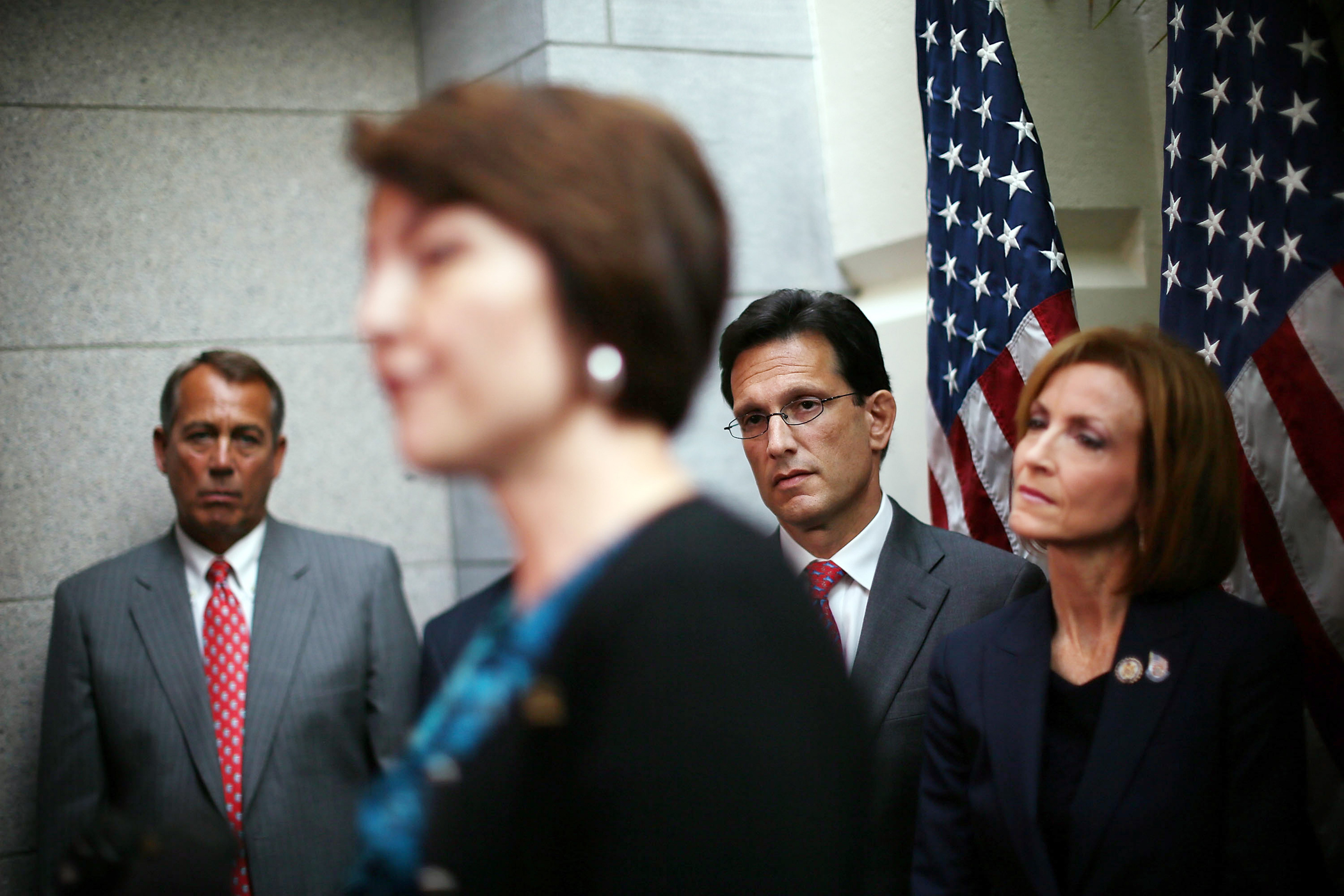
The new White House mantra is that Barack Obama, forever thwarted by an obstreperous Congress, will use “his pen and his phone” to push the action in 2014. But at least for one night, Obama can still draw on the power of the pulpit. Tuesday’s State of the Union will showcase all the pomp a presidency can muster: the House chamber filled with dignitaries, the seesaw of applause, a broadcast audience numbering in the tens of millions. The privilege is a perk of the office.
But Congress has found a way to intrude even on this. Obama’s address will be followed by no fewer than three Republican rebuttals, which will (spoiler alert) pan the speech with varying degrees of contempt. These responses — not to mention the 530 or so separate email blasts that will begin flooding inboxes before Obama even finishes speaking — are meant to siphon attention on the one night the President is supposed to have it in full.
At the same time, however, the triple rebuttal lays bare the challenges facing a fractured party. After consecutive losses to Obama and the disastrous government shutdown, the GOP’s factions are increasingly divided over tactics and message. The practice of responding to the sitting President dates back decades for both parties, but it wasn’t until the Obama era that Republican factions began jostling for postpresidential airtime. Instead of advancing the party’s ideas, the competing speeches wind up stepping on them.
Nor is it clear why the speakers would want the honor. Compared with the grand pageantry of a prime-time speech delivered by the sitting President, the opposing response tends to be flat, if not pure fiasco.
Consider the stars the GOP has selected for the task. Florida Senator Marco Rubio’s water-swigging rebuttal last January was the beginning of a difficult year. In 2012, Republican matchers tapped Indiana Governor Mitch Daniels, hoping he might emerge as the white knight to rescue a weak presidential field; now Daniels is out of politics, choosing instead to become president of Purdue University. In 2010, the party’s featured face was then Virginia Governor Bob McDonnell, who has just been indicted for favor trading. Louisiana Governor Bobby Jindal’s wooden speech in 2009 dealt his reputation a blow from which he’s never fully recovered. In the age of Obama, being chosen for the Republican rebuttal has been politics’ version of the Madden curse.
A rival tradition within the GOP has only complicated matters. Since 2011, the Tea Party has sponsored its own rejoinder to the President’s address. Its record of success has been no more distinguished. In 2011, Michele Bachmann botched her moment by gazing into the wrong camera. The following year the Tea Party offered up Herman Cain, whose laughingstock presidential campaign propelled him to a gig flogging erectile-dysfunction pills.
This year’s crop should fare better. The official Republican response will be delivered by Washington Representative Cathy McMorris Rodgers, the fourth-ranking Republican in the House. A married mom of three, she is “proof that with humility, hard work and dedication, you can overcome any obstacle,” House Speaker John Boehner said. More important, she offers a visual and biographical counterpoint to Democrats’ charges that the party is inhospitable to women. McMorris Rodgers is a dull speaker, but she sticks to the script. For a party struggling with message discipline, that may be enough.
The Tea Party riposte will be given by Utah Senator Mike Lee, the architect of the ill-fated plan that shut down the government last fall. He’ll compete with Senator Rand Paul, last year’s Tea Party responder, who is freelancing this time around as he tries to position himself as the bridge between the party’s warring factions. Bypassing official channels, Paul will broadcast his denunciation of the speech over social media. In a party with a power vacuum at the top, Paul is among the ambitious figures scrambling to fill it.
The scrum is a symptom of the civil war that threatens the party over the next two election cycles. In 2014, party bigwigs will drop millions to contest congressional primaries, sums that might be better spent in the battle to take back the Senate. In 2016, Republicans are facing a bloody presidential primary (just count the number of darts Paul has hurled at New Jersey Governor Chris Christie lately) that threatens to hobble the eventual nominee. If the GOP can’t find common ground on a response to Obama, it may struggle to find its way back to the White House when he leaves.
More Must-Reads From TIME
- The 100 Most Influential People of 2024
- Coco Gauff Is Playing for Herself Now
- Scenes From Pro-Palestinian Encampments Across U.S. Universities
- 6 Compliments That Land Every Time
- If You're Dating Right Now , You're Brave: Column
- The AI That Could Heal a Divided Internet
- Fallout Is a Brilliant Model for the Future of Video Game Adaptations
- Want Weekly Recs on What to Watch, Read, and More? Sign Up for Worth Your Time
Write to Alex Altman at alex_altman@timemagazine.com